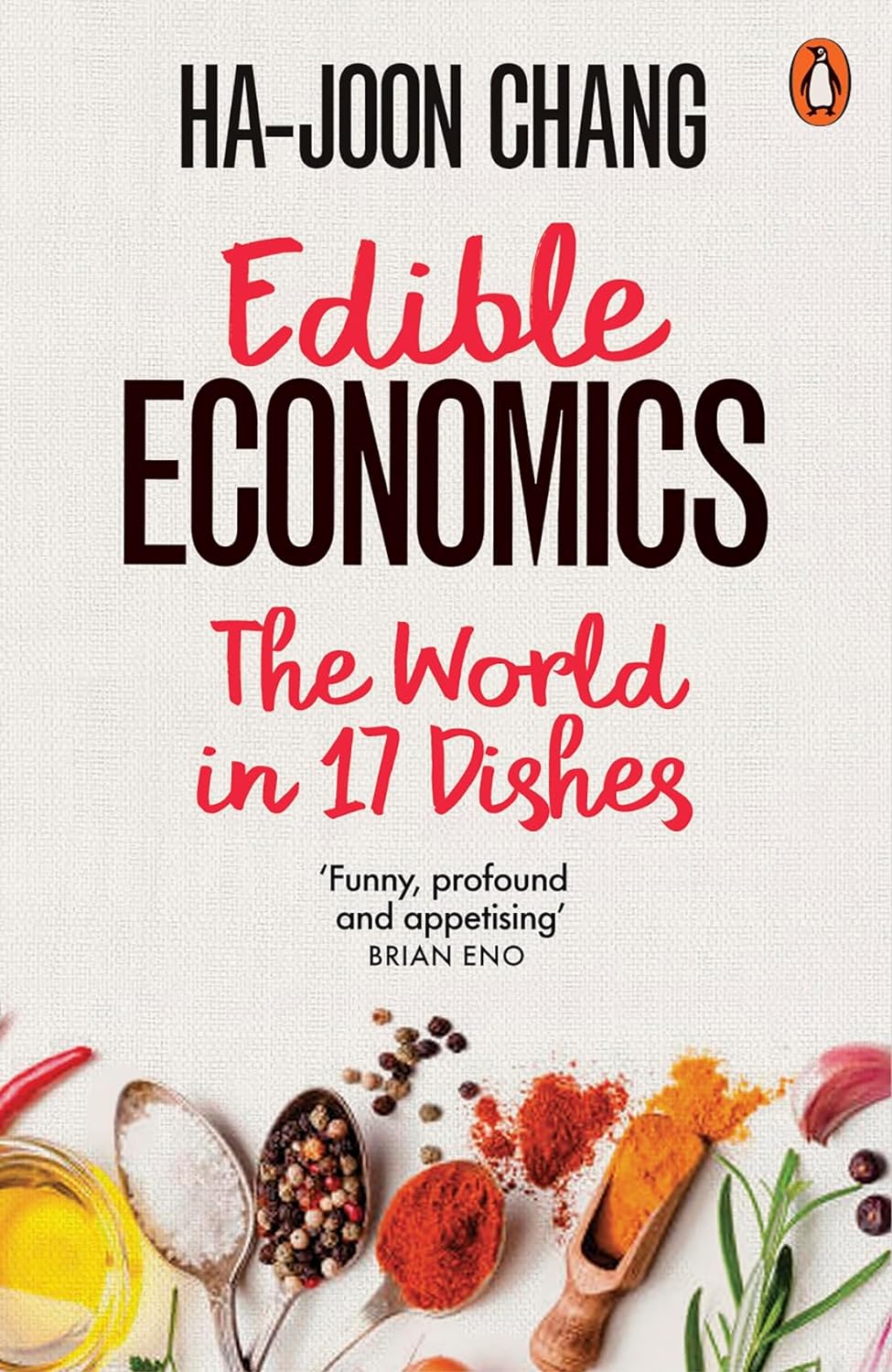
Edible Economics: The World in 17 Dishes
Ha-Joon Chang
About the Author

Ha-Joon Chang
Questions & Answers
The book challenges Neoclassical economics' dominance by illustrating its limitations through various food stories. It argues that Neoclassical economics, while useful, has become an intellectual monoculture, overshadowing other valid economic theories. By showcasing diverse economic perspectives, the book encourages readers to consider multiple viewpoints. It emphasizes the importance of varied diets in economics, advocating for a more balanced and open-minded approach to economic theory and practice. The book also highlights the need for imaginative economic thinking, combining different theories to address complex economic issues effectively.
Food serves as a powerful metaphor and illustrative tool throughout the book to explain complex economic concepts and ideas. By using various food items and their histories, Ha-Joon Chang demonstrates the interconnectedness of economics with culture, history, and society. For instance, the story of garlic illustrates the impact of cultural stereotypes on economic outcomes, while the coconut exemplifies the misconceptions about poverty in tropical countries. The book also uses food to critique economic theories and policies, such as the limitations of free-market economics and the importance of government intervention. Additionally, food is used to highlight the role of innovation, technology, and globalization in shaping economic development. Overall, food acts as a unifying theme that makes economic concepts more relatable and accessible to a broader audience.
The book challenges common misconceptions about economic development and poverty by illustrating various economic theories and historical examples through the lens of food. It argues that culture is not the primary determinant of economic outcomes, refuting the idea that certain cultures are inherently more suited for economic success. The book also debunks the notion that poor countries are poor due to a lack of work ethic, emphasizing the role of productivity and historical factors like colonialism and international economic systems favoring rich countries. It highlights the importance of industrialization, innovation, and fair trade policies in fostering development and reducing poverty.
The book explores the potential benefits and drawbacks of free trade and globalization through various food-related examples. Benefits include increased access to diverse foods, fostering cultural exchange, and promoting economic growth. For instance, the spread of bananas and the global popularity of beef demonstrate how free trade can enrich diets and economies. However, drawbacks include the potential for exploitation, environmental degradation, and economic inequality. The banana industry's dominance by large corporations exemplifies the power imbalances in global trade, while the environmental impact of beef production highlights the ecological costs of globalization. Overall, the book suggests that while free trade and globalization can bring benefits, they also come with significant challenges that need to be addressed.
To better understand and utilize economics for a more equitable and sustainable world, individuals and policymakers should:
-
Diversify Economic Theories: Embrace a variety of economic perspectives, including those that focus on human capabilities, social dynamics, and environmental impact, to gain a comprehensive view of economic issues.
-
Challenge Myths and Biased Assumptions: Question common economic myths, like the notion that poor countries are poor due to laziness, and recognize the role of historical and structural factors in poverty.
-
Promote Industrialization: Support industrialization to develop high-productivity sectors, which can lead to higher living standards and sustainable development.
-
Implement Protectionism Strategically: Use protectionism to nurture young industries and protect against foreign competition, ensuring that developing countries can compete on a level playing field.
-
Address Inequality and Social Justice: Focus on reducing income and wealth inequality, ensuring fair labor rights, and promoting social justice to create a more equitable society.
-
Invest in Education and Skills Training: Develop human capital through education and skills training to enhance productivity and adapt to changing economic landscapes.
-
Support Sustainable Practices: Encourage sustainable economic practices that protect the environment and ensure long-term resource availability.
-
Engage in Critical Reflection: Continuously evaluate economic policies and their impact on society, adjusting them as needed to address emerging challenges and opportunities.